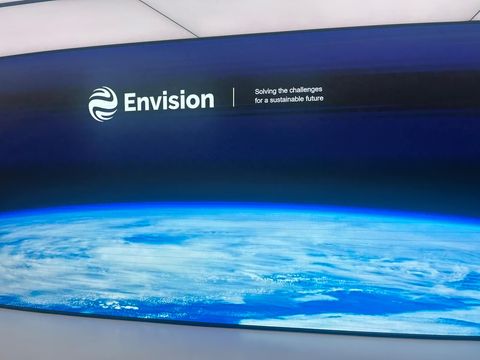Envision Group is a prominent green technology company in China and one of the leading suppliers of wind turbines globally. Recently, the company has been collaborating with local governments in China to help achieve carbon neutrality in alignment with the national target for 2060. In 2020, Envision Group initiated discussions with the Inner Mongolia government to establish a Net Zero Industrial Park in the cities of Ordos and Baotou. Ordos, known as the world’s largest coal-powered city-economy, currently produces about 16% of China’s coal and faces significant pressure to transition to clean energy sources while maintaining energy accessibility and flexibility in its power system.

Consequently, the Net Zero Industrial Park will be the first of its kind in China, designed to produce green hydrogen that aims to decrease Ordos’ coal usage in industrial applications. Additionally, the park will feature an 8 GWh/year plant for energy storage and batteries. A smart grid will manage the distribution and utilization of renewable energy across the facility. The project is set to further cut emissions by replacing 330,000 coal transport trucks with electric vehicles, leading to a reduction of 30 million tons of greenhouse gas emissions annually and saving RMB 30 billion in operational costs. Moreover, utilizing 100% locally sourced renewable energy at 5 TWh/year, the operations of the Industrial Park are projected to achieve net-zero emissions.

Additionally, Envision Group has also partnered with globally established organizations and multinational including Mercedes, Starbucks, Microsoft among others.
Turbines at Envision Group
As Envision Group is a leading company in providing comprehensive net zero solutions, it designs and also manufactures world’s best turbines, smart wind turbines, smart energy storage systems and green hydrogen solutions. Envision is a pioneer in the industry for developing smart turbines that integrate advanced control systems, data analysis, active performance management, and predictive reliability capabilities. Utilizing a ‘digital twin’ technology, these turbines gain insights into their real-time status at the component level, as well as a comprehensive understanding of environmental conditions. This ‘software-defined’ methodology is applied throughout the entire process from design to deployment, leading to turbines that are more effective and have extended service lifespans.





















